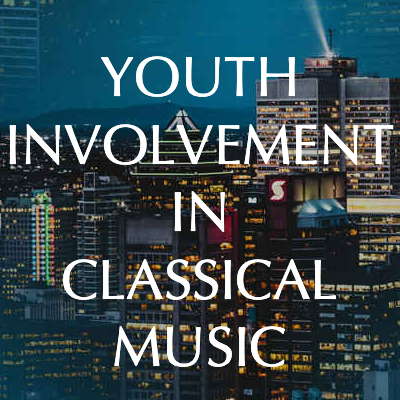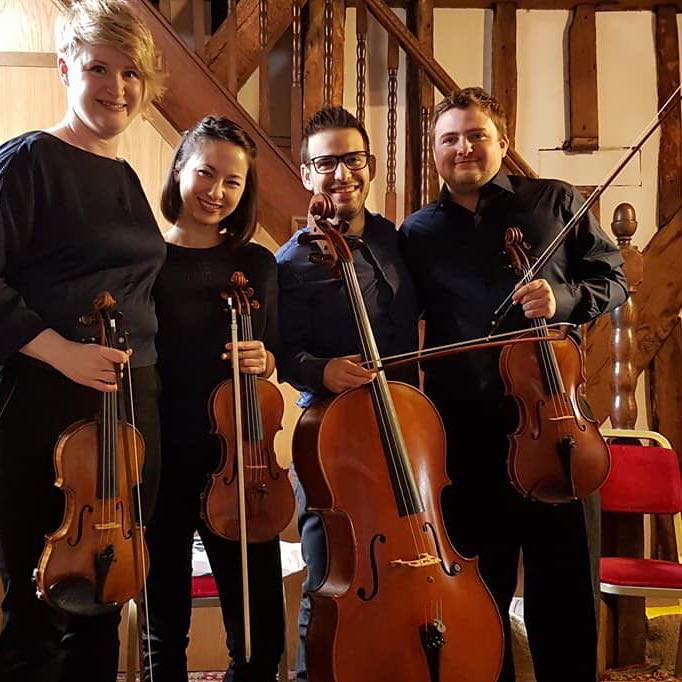 SPONSORED: Ensemble. Last Gasp of Boyhood. Roderic Dunnett investigates Jubilee Opera's A Time There Was for the Benjamin Britten centenary.
SPONSORED: Ensemble. Last Gasp of Boyhood. Roderic Dunnett investigates Jubilee Opera's A Time There Was for the Benjamin Britten centenary.
All sponsored features >>
 VIDEO PODCAST: John Dante Prevedini leads a discussion about Youth Involvement in Classical Music - this specially extended illustrated feature includes contributions from Christopher Morley, Gerald Fenech, Halida Dinova, Patricia Spencer and Roderic Dunnett.
VIDEO PODCAST: John Dante Prevedini leads a discussion about Youth Involvement in Classical Music - this specially extended illustrated feature includes contributions from Christopher Morley, Gerald Fenech, Halida Dinova, Patricia Spencer and Roderic Dunnett.
Finely Balanced
Mozart, Shostakovich and Beethoven,
played by the Artesian String Quartet,
and heard by MIKE WHEELER
Traffic gridlock brought on by flooding resulted in my arriving late to Derby Chamber Music's latest concert - Multi-Faith Centre, Derby University, Derby, UK, 8 November 2019 - but the players of the Artesian String Quartet were affected, too, and the consequent delayed start meant I was still able to hear most of Mozart's D minor String Quartet, K 421, albeit from the foyer. The second movement's emotional poles of suavity and agitation were finely balanced, and the underlying unease in the Minuet was pointed up by the Quartet's capricious account of the Trio section. The finale's edgy, shifting moods found an oasis of calm in Variation 4, before the unsettled ending.
Shostakovich's Fourth Quartet begins in a kind of abrasive rusticity, as if making a caustic comment on the sort of thing he felt expected to write. The moment when the harmony suddenly clears felt like a real moment of release, and a turning-point, before the long, slow wind-down.
The second movement was charged with a kind of dignified sorrow, the opening expressive solo for muted first violin leading the way, and ended with an unmistakeable aural question-mark. Shostakovich is as enigmatic as ever in the third movement's sombre, nervy dance, and the grotesque gesture linking it to the finale was delivered in all its lumpy strangeness. The last movement itself, another dance, slower and heavier, boiled over in a veritable howl of protest, before the disembodied ending, the players in complete control of their wisps of tone.

The Artesian String Quartet - from left to right: Kate Suthers and Cassi Hamilton, violins; António Novais, cello; and Matt Maguire, viola
The off-kilter introduction to Beethoven's Quartet in C, Op 59 No 3, comes from a similarly strange region, and even in the apparent blithe unconcern of the rest of the first movement, the players allowed more mysterious moments to show through. The pizzicato opening to the second movement was one point where the cello seemed over-dominant, but the music settled into a gently swaying lyricism. If this performance was a little light on the slavic melancholy that some commentators have heard in the music, that wasn't necessarily a bad thing. The Minuet was properly relaxed and low-key as a buffer between this and the runaway train that is the fugal finale. The Artesian Quartet was clearly determined to pull no punches, and provided a thrilling conclusion to an extraordinary - in more ways than one - evening.
Copyright © 28 November 2019
Mike Wheeler,
Derby UK



